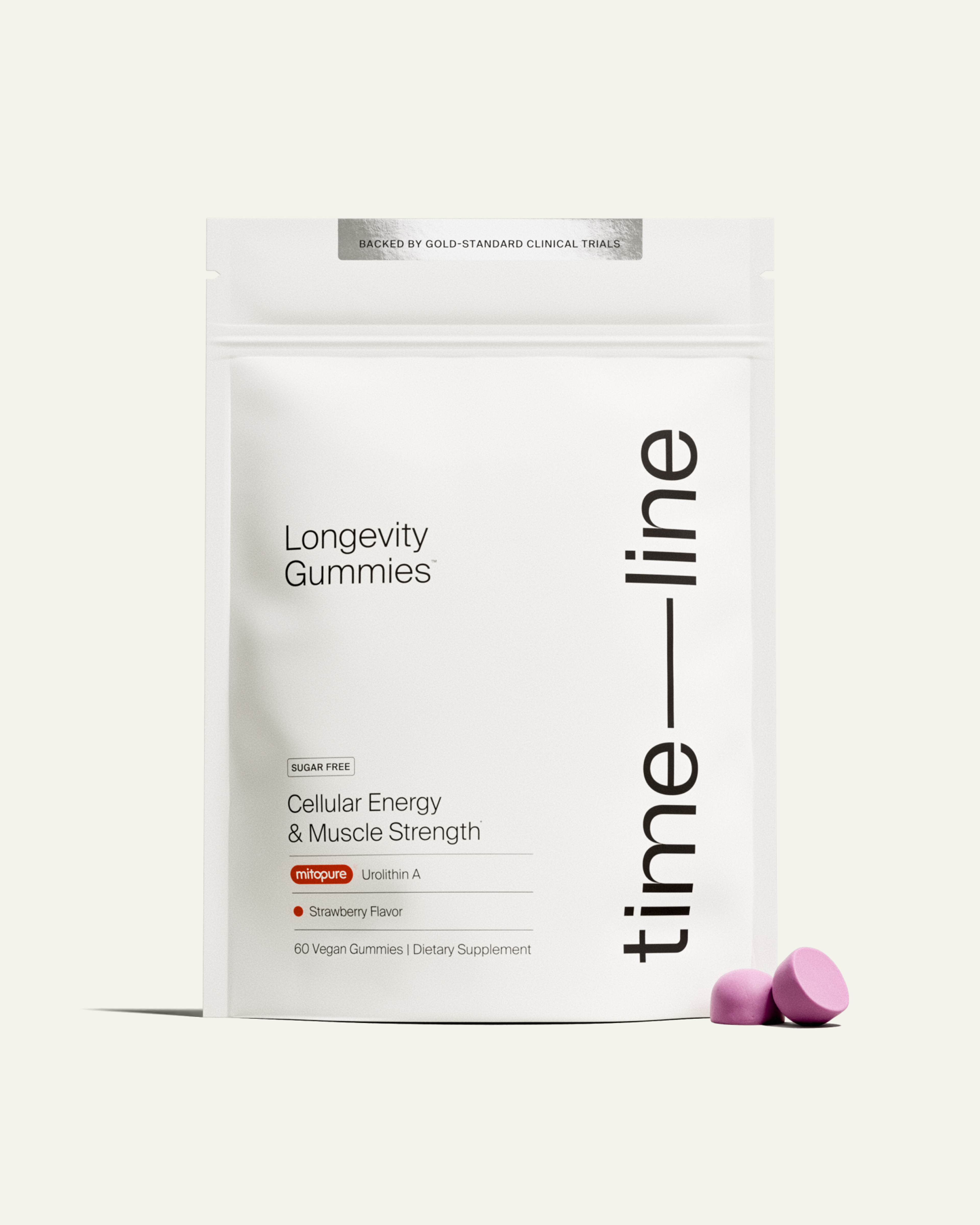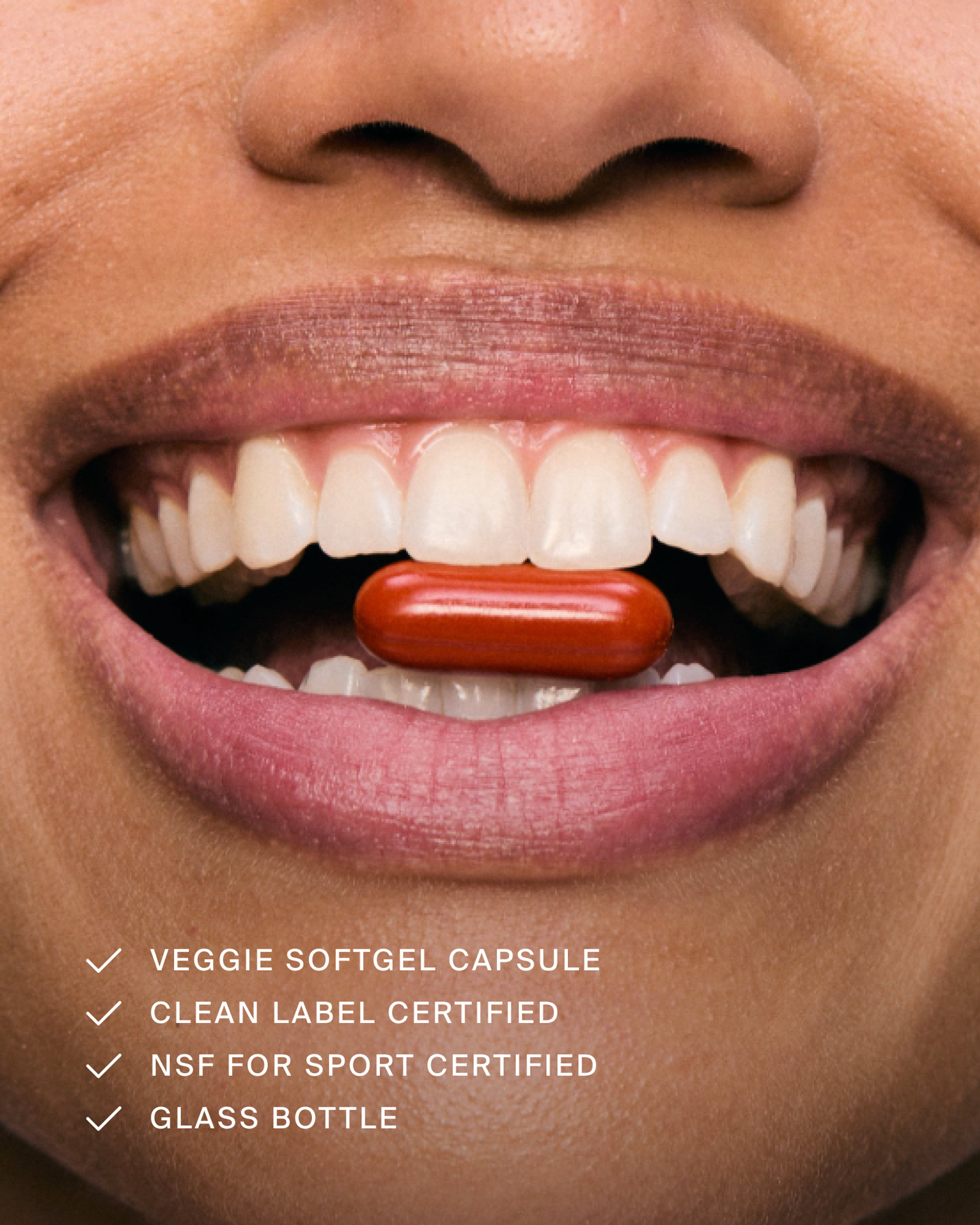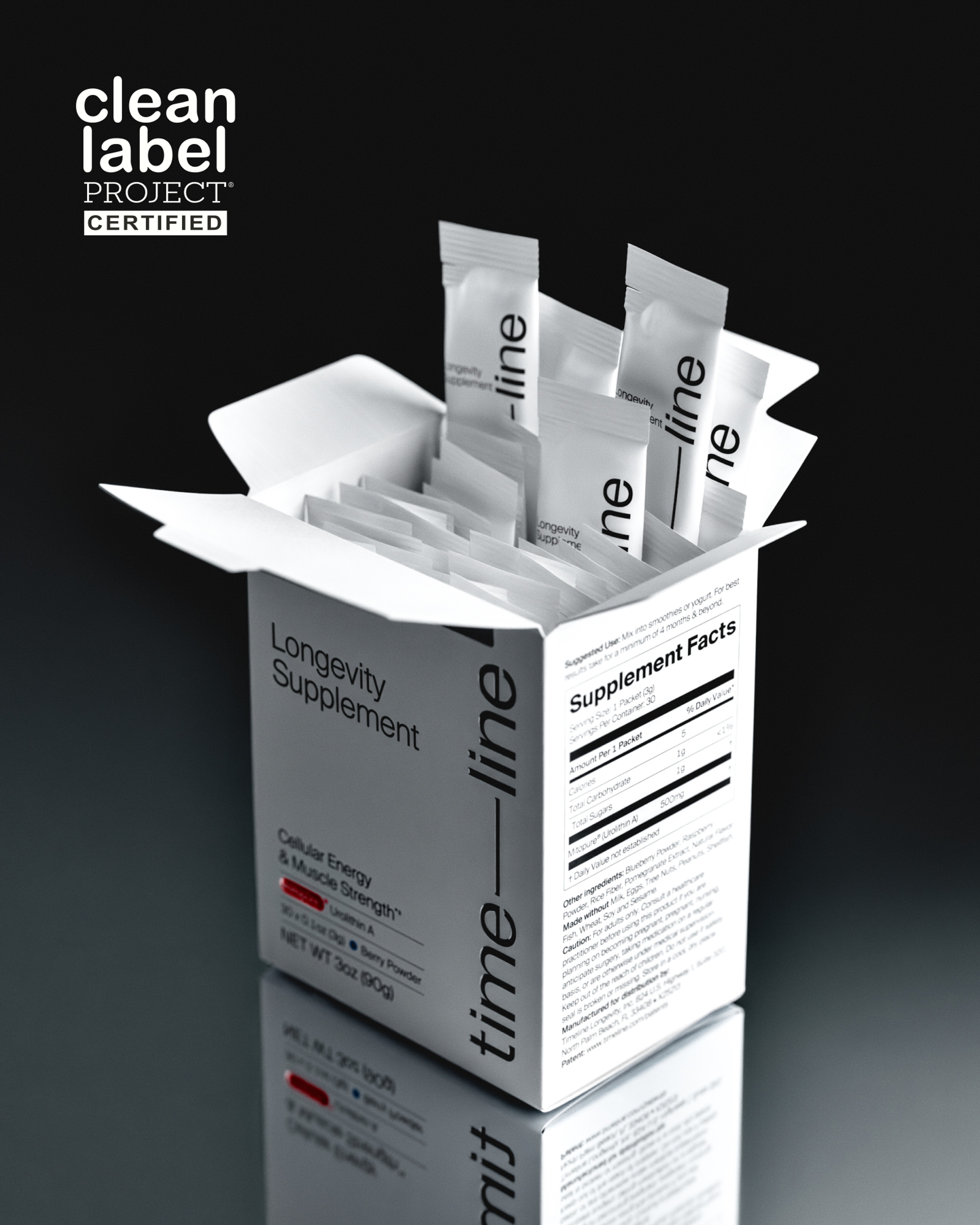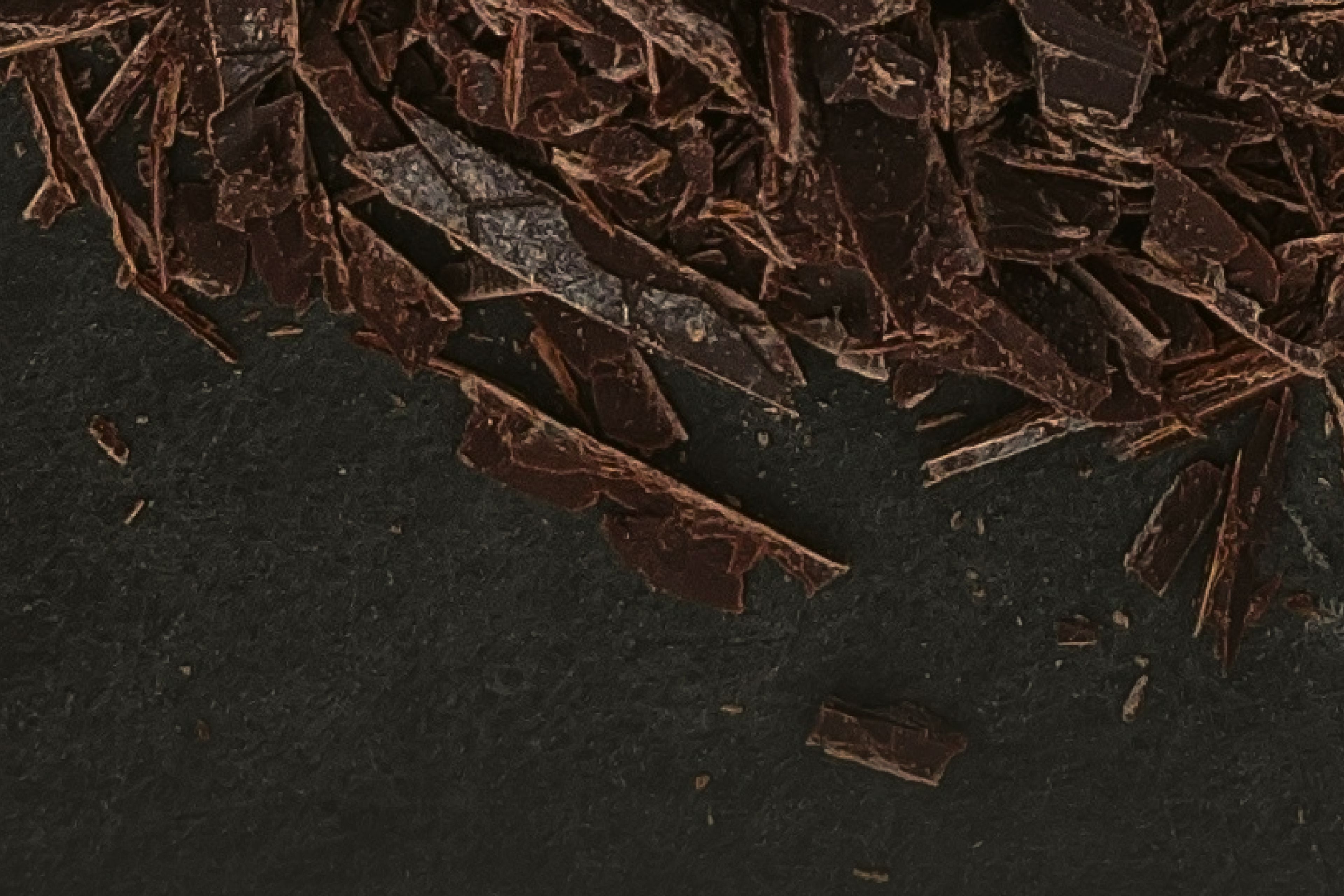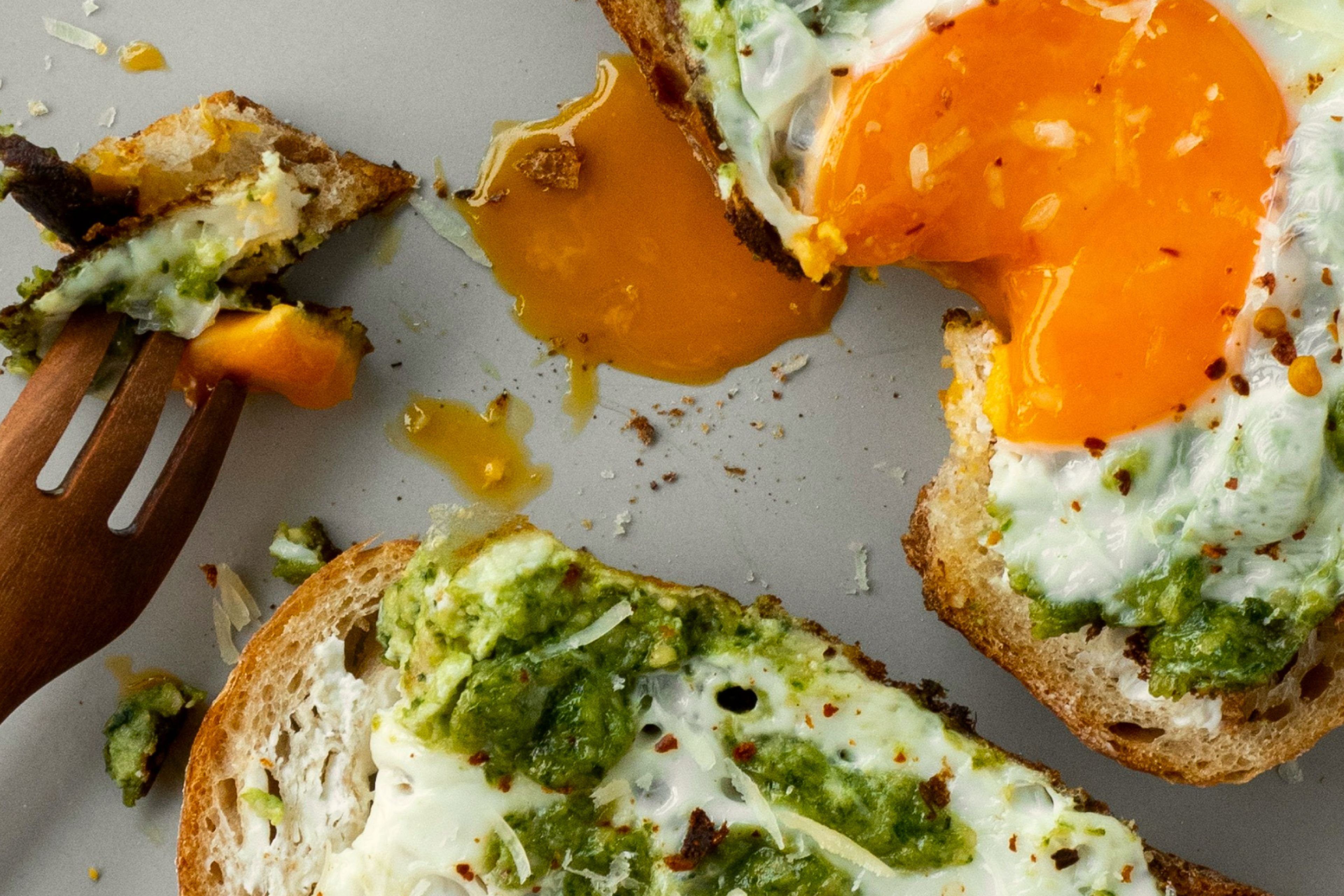The best anti-inflammatory foods to speed muscle recovery
Looking to speed muscle recovery after a tough workout? Learn to reduce muscle inflammation naturally via diet, supplements, and lifestyle habits.
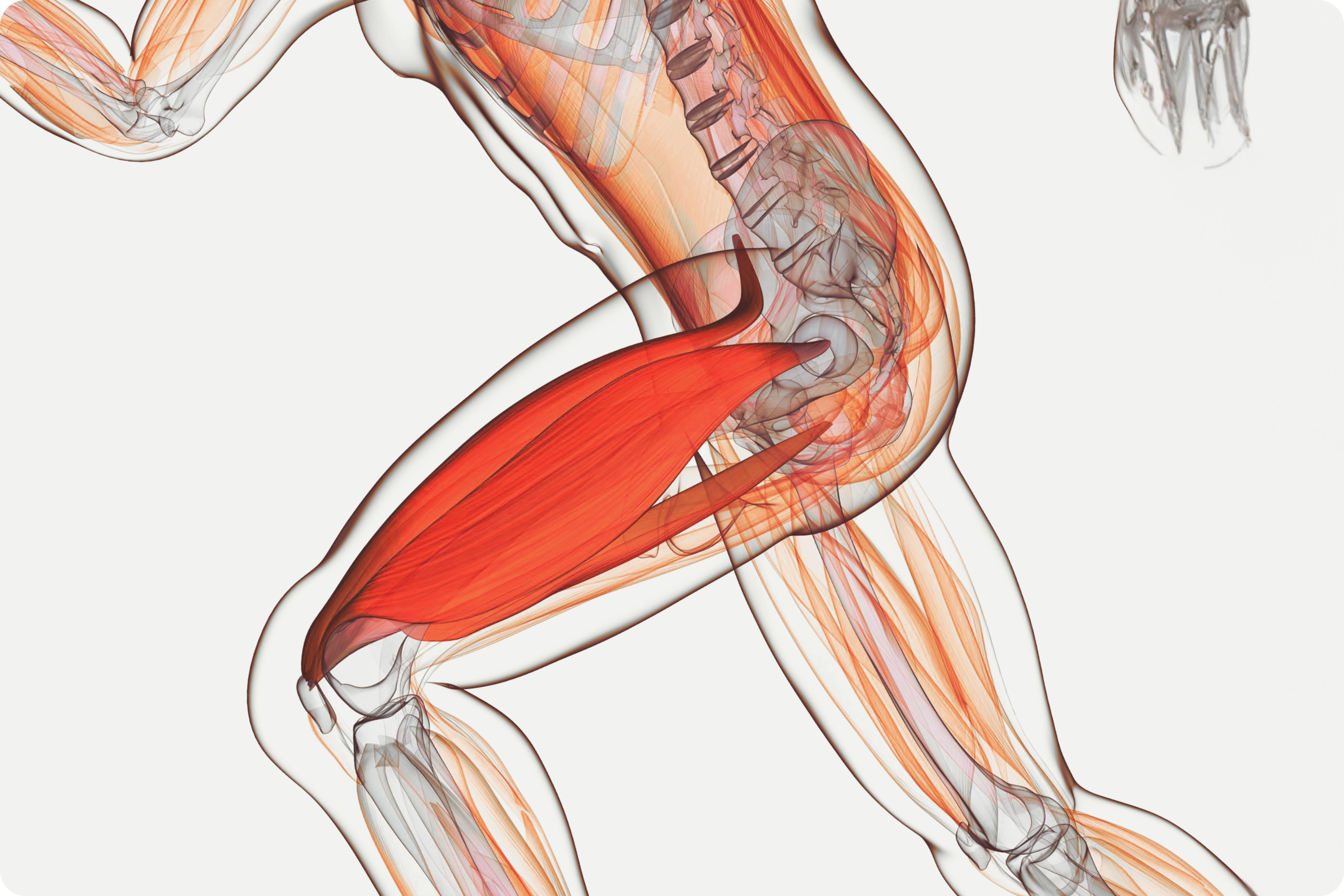
What to know
Prioritizing the muscle recovery process is essential, especially regarding strength training.
Incorporating foods like fatty fish, pomegranates, starchy vegetables, tart cherry juice, and others can accelerate muscle recovery.
Consuming a mix of protein, carbs, and healthy fats throughout the day aids in proper muscle recovery and glycogen repletion.
Beyond diet and other lifestyle practices like proper sleep and rest, supplements like Mitopure can facilitate recovery via enhanced mitochondrial health.
Do you ever find yourself plowing through your workouts while neglecting the recovery process? Prioritizing muscle recovery after workouts is an essential aspect of any fitness regimen, and this is where the true magic happens in your fitness growth.
What you do in the period following a workout is just as crucial as the exercise itself, as this is the key opportunity for your muscles to repair and rebuild. This is especially true if you’re doing strength training and muscle growth is one of your goals.
Recovery times vary depending on several factors. For lighter workouts, recovery can occur within 24 hours, but longer, more intense, or endurance workouts can take up to 3-4 days.
In addition to rest, certain muscle recovery foods, supplements, and practices can reduce muscle inflammation and soreness to reduce recovery time.
In this article, you’ll learn what foods help muscle recovery faster, how to time your post-workout fuel, and other lifestyle practices that can facilitate faster recovery.
The body's response to exercise
During any type of exercise, your body starts to facilitate muscle turnover, which is the cycling between muscle breakdown and muscle building. In order for this process to work, your cells produce an energy source called ATP.
To generate ATP, your mitochondria, the energy centers of your cells, need to be healthy and well-functioning. This is especially true with more intense weight training when the muscles cycle through ATP rather quickly. The mitochondria in the body work to continue to generate more ATP to keep your energy levels going so you experience a more effective workout session[1]. A by-product of the mitochondria working so hard is inflammation.
This type of inflammation is both natural and necessary for the body to adapt to your training; however, too much inflammation can be painful in the muscles and subsequently delay your progress, making it harder to return to the gym the next time. This common type of muscle soreness many people experience is called Delayed Onset Muscle Soreness, or DOMS, which typically arises anywhere from a few hours up to a few days after a workout. Once your workout is complete, the goal is to reduce exercise-induced inflammation quickly to stimulate recovery and reduce muscle soreness. Incorporating certain foods and lifestyle practices is critical to reduce pain and soreness during this time.[2]
Muscle recovery foods
What nutrients do you need after a workout? While a balanced diet with various lean proteins, complex carbohydrates, fiber, and healthy fats fuels your daily workouts, adding these 9 muscle recovery foods to your plan can help speed up the recovery process.
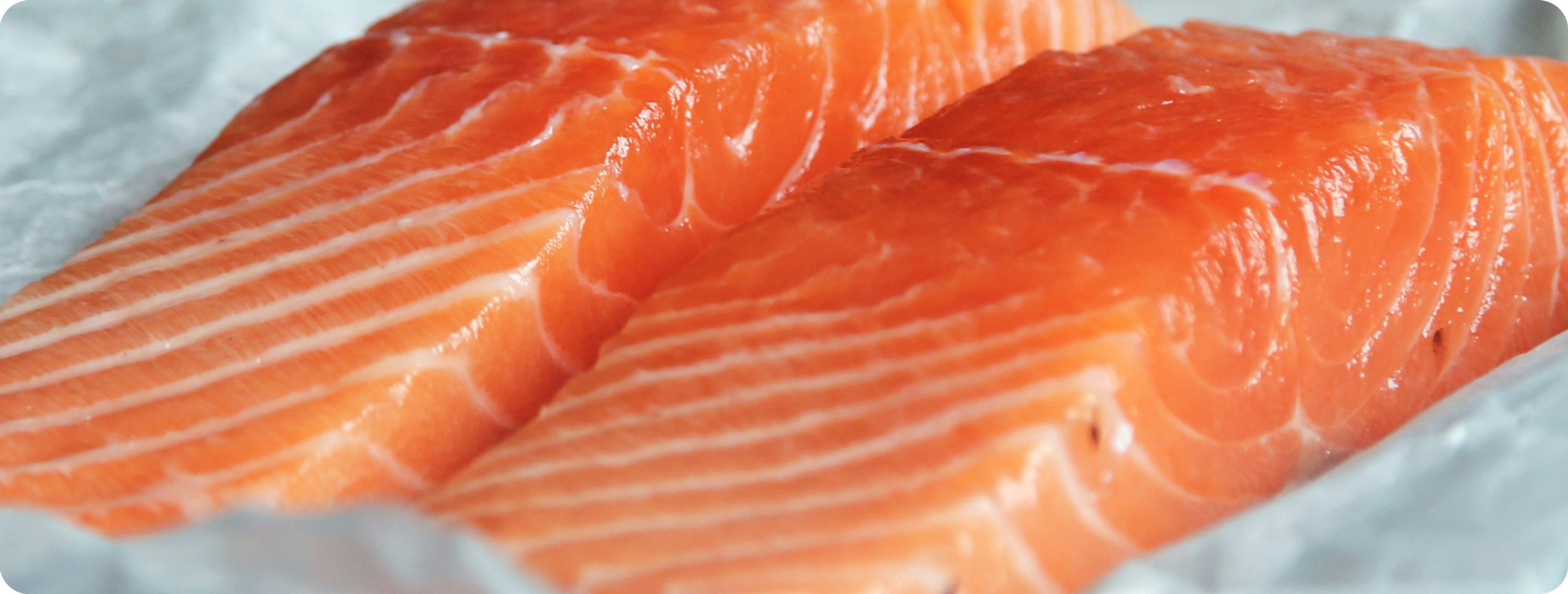
Fatty fish
Fatty fish like salmon, mackerel, tuna, and sardines are highly bioavailable sources of protein, one of the top macronutrients for muscle repair. They are also abundant in omega-3 fats,[3] anti-inflammatory fats that are linked to reduced DOMS, inflammation, and boosted muscle growth.[4]
How to eat it: Aim for 4 ounces of salmon or tuna in a sandwich or whole-wheat crackers shortly after your workout. If you’re not a fish fan, you can obtain omega-3s from a handful of walnuts, chia, flaxseeds, or a quality fish oil supplement.[5]
It’s important to note that the omega-3s present in nuts and seeds are not as bioavailable as those found in fish, so if you don’t eat fish, a fish oil supplement can make it easier to meet your daily needs.
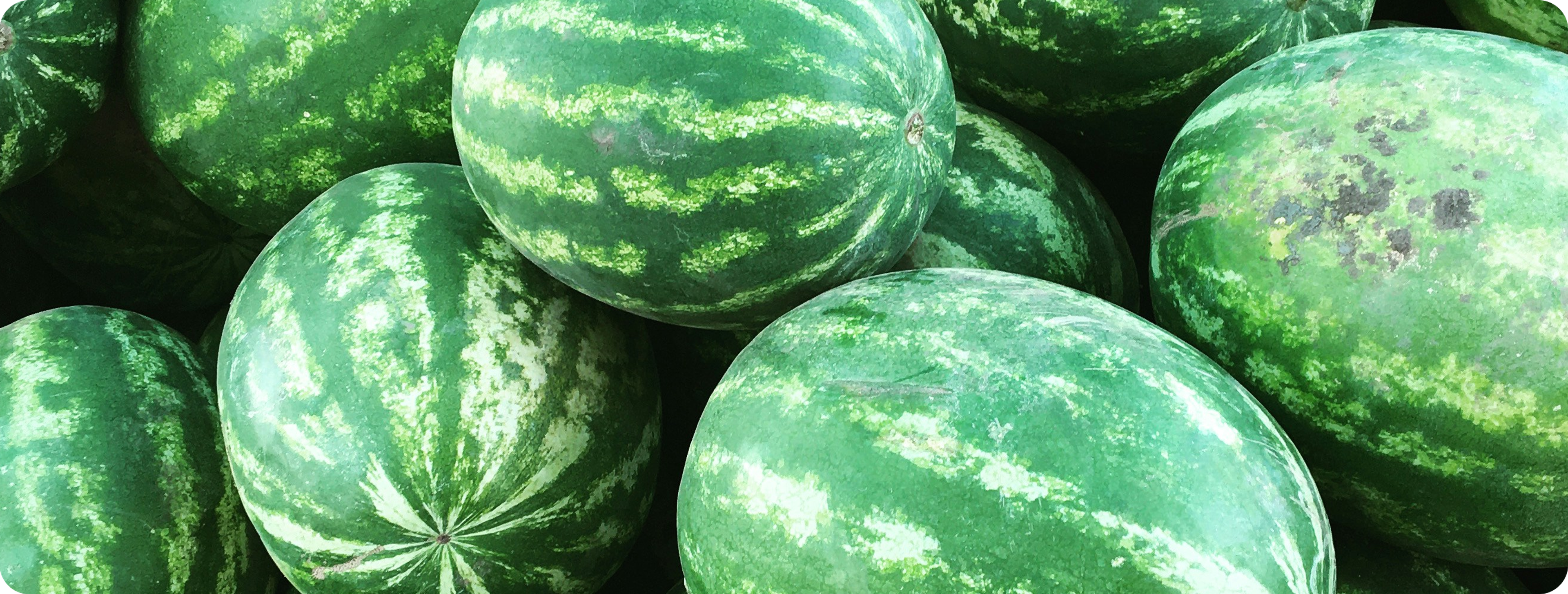
Watermelon
Watermelon is a perfect post-workout food for several reasons - it is high in water content for rehydration and rich in antioxidants for inflammation. It also contains an amino acid called L-citrulline, a protein-building block shown to enhance blood circulation to muscles by increasing nitric oxide levels in the body.
Several studies suggest watermelon’s potential to reduce muscle soreness and damage post-exercise,[6] and it is also a refreshing snack, especially on hot weather days.
How to eat it: Enjoy a handful of fresh watermelon as a snack or drink a glass or two of watermelon juice after a hard workout. Consume juice in moderation to keep sugar intake in check.
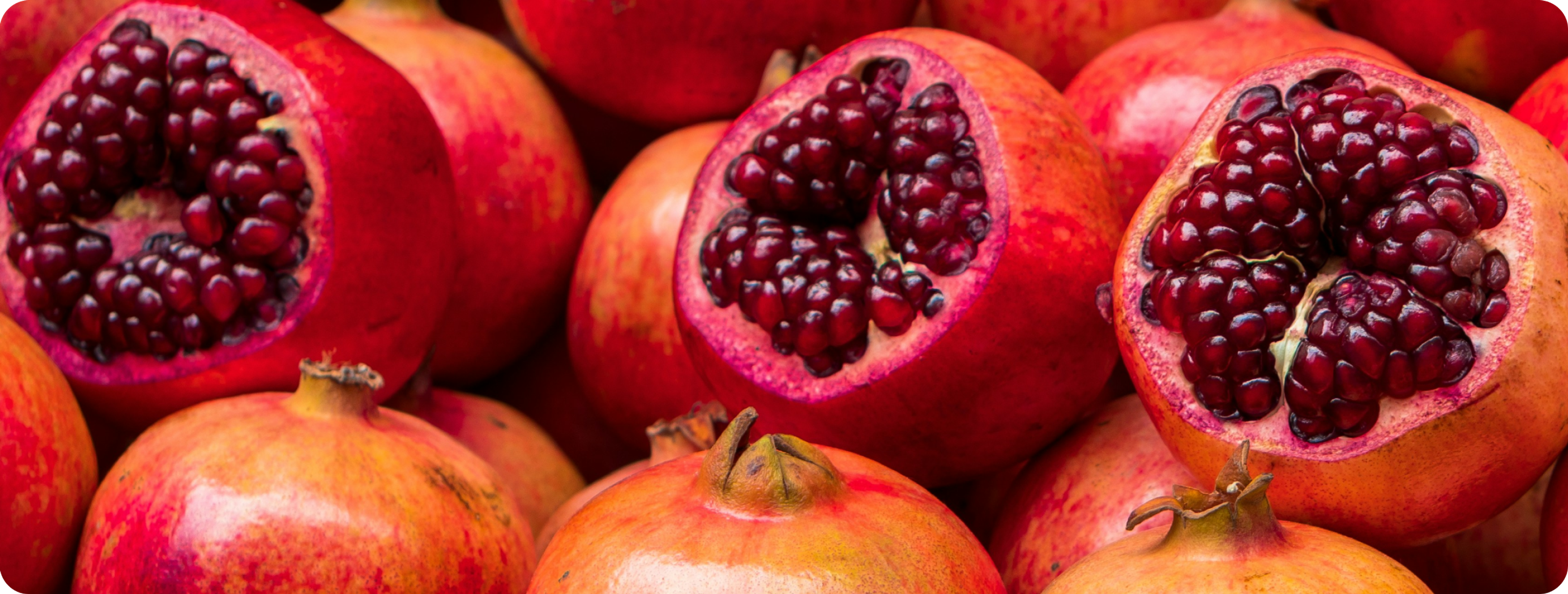
Pomegranates
Pomegranates and pomegranate juice are rich sources of polyphenols, health-promoting plant compounds that can lower inflammation. Studies have shown pomegranate juice may decrease DOMS, reduce markers of inflammation, and speed muscle recovery.[7]
How pomegranates reduce muscle inflammation is a fascinating process. Pomegranates are high in a particular polyphenol called ellagic acid, which is converted by gut bacteria into Urolithin A (UA). This postbiotic reduces natural inflammation associated with exercise; however, many people do not have the proper gut bacteria to do this.
This is why Mitopure contains a direct dose of UA, so everyone has the ability to fully absorb this beneficial compound.
How to eat it: You can enjoy pomegranates on their own, pomegranate juice, or add Mitopure to your supplement regime to get your daily dose of polyphenols. Consume juice in moderation due to its sugar content.
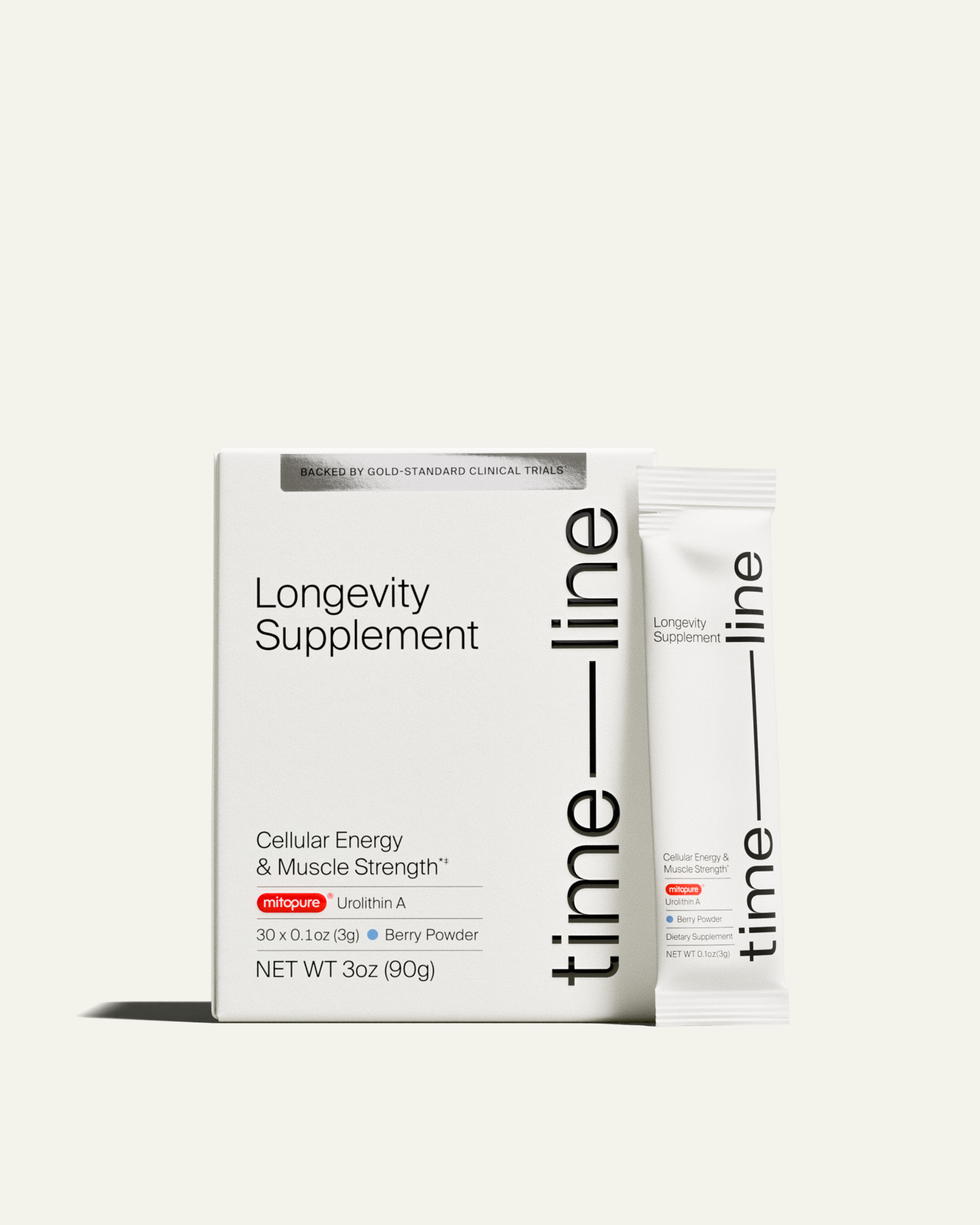
Mitopure Powder
4.5 · 1053 reviews
A tasty addition to your health routine
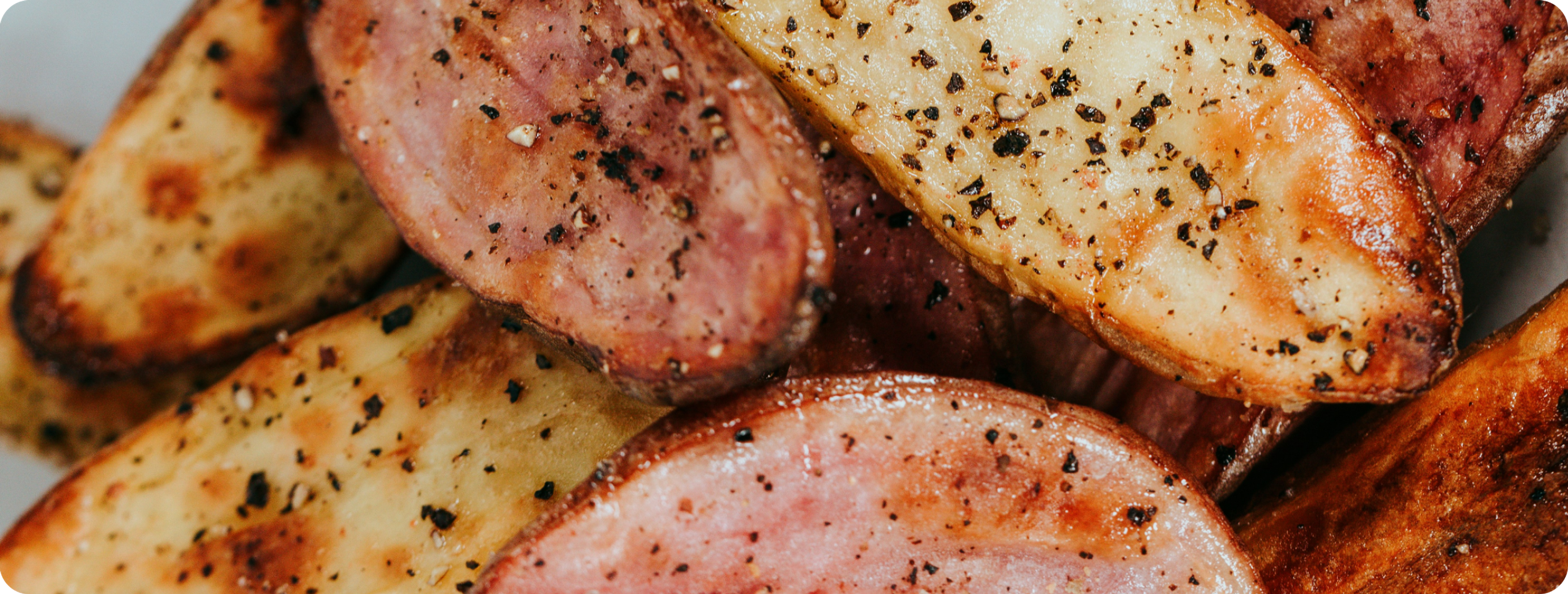
Starchy vegetables
While protein is one of the most talked about macronutrients for recovery, carbohydrates are equally important. Starchy veggies like potatoes, butternut squash, and beans are wonderful choices for a post-workout meal.
The carbohydrates in these veggies help replenish glycogen stores and balance depleted energy levels after an intense workout. According to research, pairing a carbohydrate with a protein source appears to enhance glycogen repletion more than consuming carbohydrates alone.[8]
How to eat them: Enjoy a serving of a starchy veggie with a lean protein source like chicken, fish, or ground turkey.
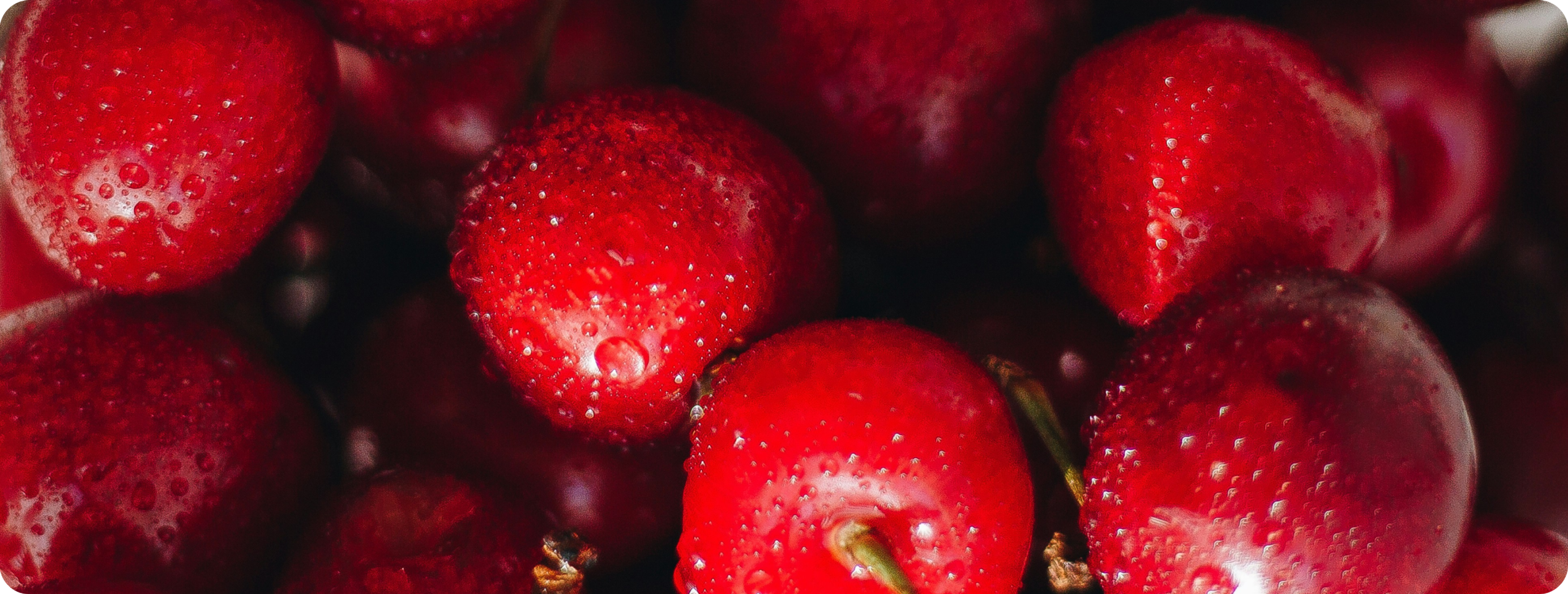
Tart cherry juice
If you’re looking for a replenishing beverage, tart cherry juice may be one you want to try. Studies show drinking tart cherry juice after a workout may facilitate muscle recovery and help mitigate DOMS[9].
Tart cherry juice is high in healthful plant compounds called anthocyanins which have powerful anti-inflammatory and antioxidant effects, which may reduce exercise-induced inflammation.
How to take it: According to studies, as little as 2 ounces a day of tart cherry juice may support muscle recovery. You can also take a tart cherry juice extract supplement. Better results are likely when you take these daily and let them build up in your system versus just after a workout.[10]
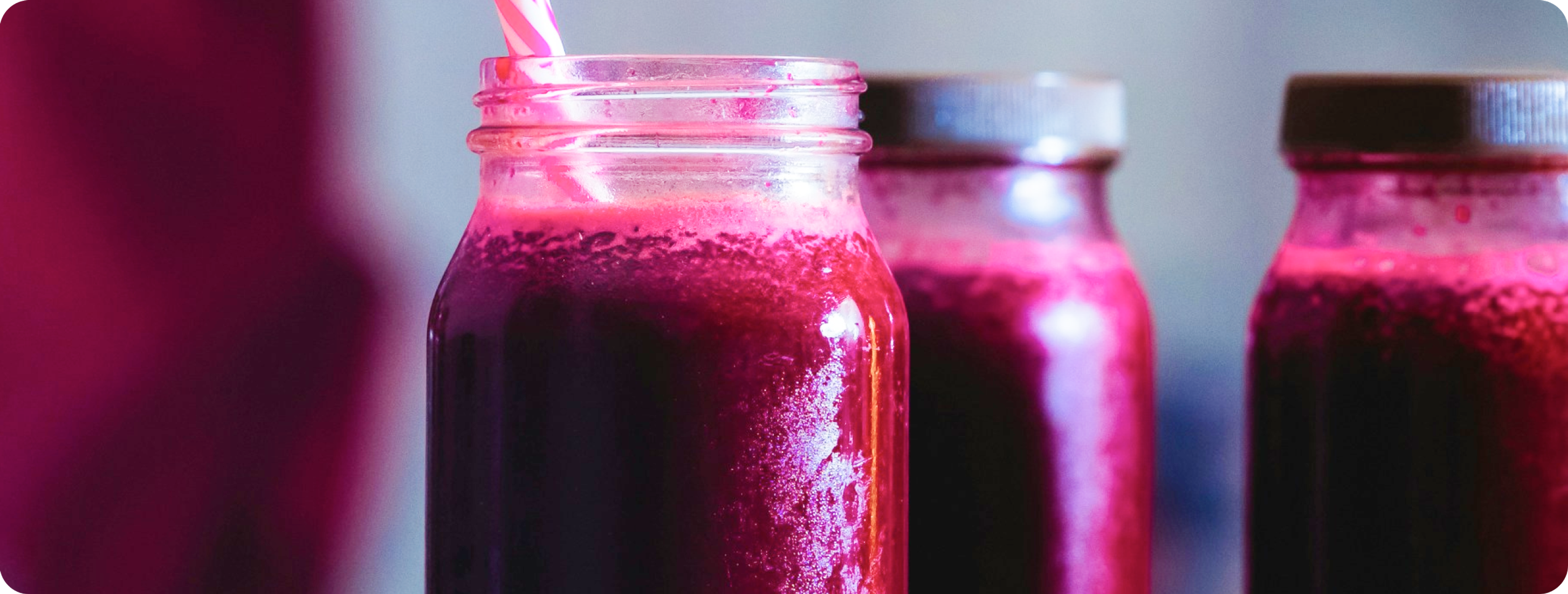
Beet juice
Another juice you may want to have on hand is beet juice. Loaded with dietary nitrates and beneficial pigments called betalains, these two compounds work together to improve the efficiency of your mitochondria and reduce inflammation.[11]
As you may recall, your mitochondria help generate energy to fuel your workouts, so anything you can do to improve their efficiency will boost your workout and aid in muscle recovery.
How to take it: Drink 16 ounces of beetroot juice or a beetroot extract supplement daily as part of your recovery regimen.[12]
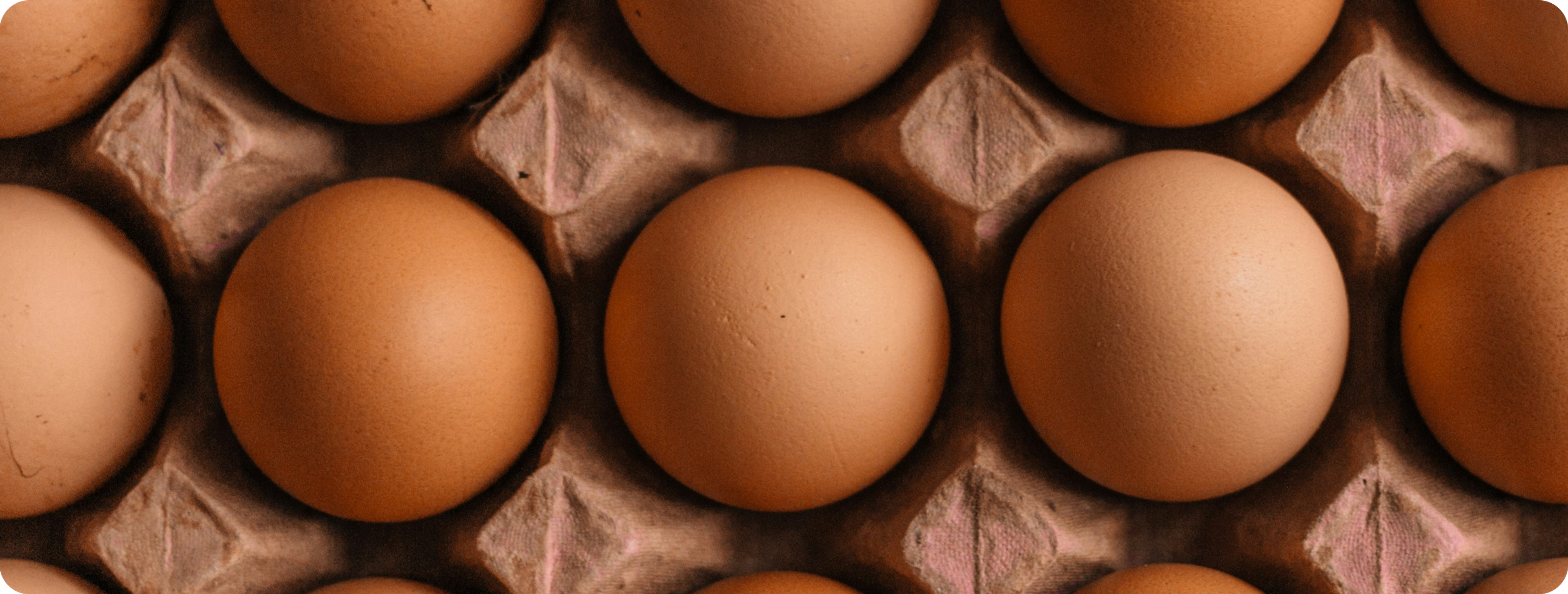
Eggs
Eggs are a classic post-workout food and one of the highest-quality protein sources. And even though egg yolks sometimes get a bad rap, research shows eating the whole egg leads to greater muscle growth[13].
Egg yolks are rich in healthy fats, vitamins, and minerals that are not present in the white itself, thus, offering additional benefits beyond just protein.
How to eat them: Enjoy hard-boiled eggs, add eggs to a salad, or make an omelet after a morning strength session.
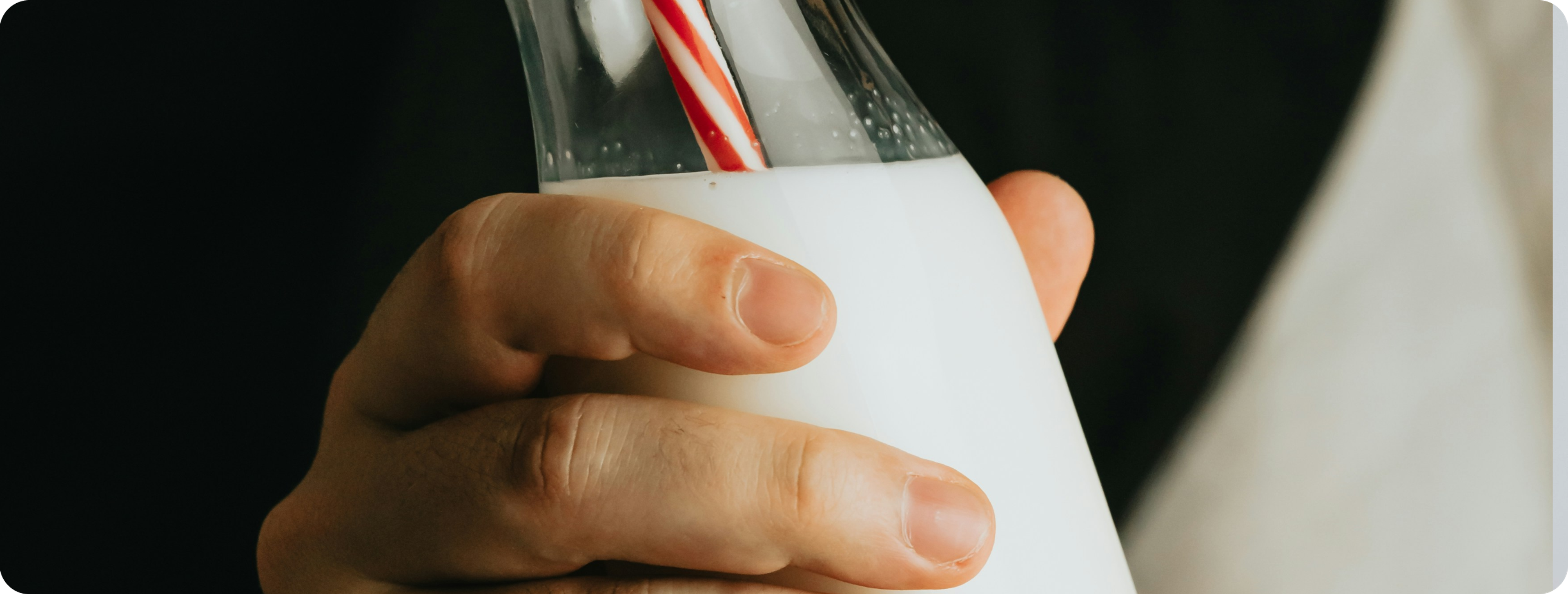
Milk
If you’ve ever tried chocolate milk after a workout, you may be on to something. Studies have shown cow’s milk products in particular facilitate muscle recovery and enhance muscle function at subsequent workouts.[14]
Milk also contains an ideal nutritional profile regarding carb-to-protein ratio, which can further enhance muscle growth and recovery by replenishing glycogen stores.[15]
How to drink it: Enjoy a glass of whole or low-fat milk after a workout to facilitate muscle recovery. You may add some chocolate syrup for flavor if you choose if you had a particularly intense workout, otherwise, your body probably doesn’t need the extra added sugar.
Post-workout meal timing
For years, the recommendation has been to refuel after your workout within 30-45 minutes, as this was the key time for muscle growth and glycogen repletion. Your nutrition needs will depend on the type of training you’re doing. If you are doing endurance exercise (e.g., running), you want to start consuming carbohydrates as soon after your workout as possible to replenish the muscle glycogen you used during exercise. Waiting to replenish with carbs could delay your recovery. Research shows that you can replenish the glycogen in your muscles better if you eat smaller amounts of carbohydrates at more frequent intervals after exercise rather than a whole lot all at once immediately after.[16]
Protien is a different story. Studies have found the post-exercise window to maximize muscle growth with protein intake is wider than originally thought, up to several hours later.[17] The most important factor when it comes to muscle growth is to eat your total protein needs each day.
Another important factor is if you ate a carb and protein-rich meal shortly before exercising. If so, you probably have enough stores in your body to pull from until the next meal or snack.
If you didn’t eat enough before your workout, timing your post-workout meal shortly after will be more important.[18]
Lastly, what’s most important is what you eat throughout the day. The best thing you can do for your workout performance and recovery is to eat balanced meals throughout the day so that you are always well-fueled and prepared.
Other ways to speed muscle recovery
In addition to knowing how to reduce inflammation naturally through diet, there are other factors that play a role and should be practiced as part of a holistic recovery regimen.
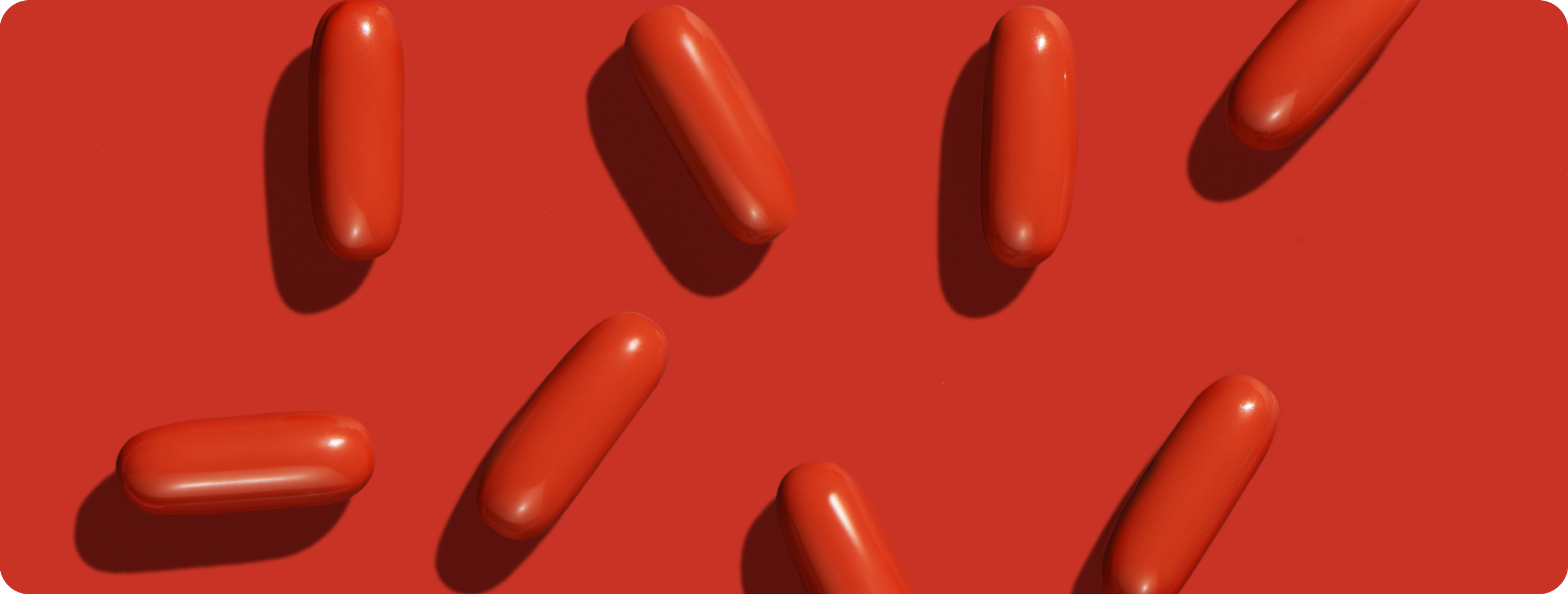
Supplements
Taking muscle recovery supplements like Mitopure(Urolithin A) can support mitochondrial health and, thus, reduce recovery time. Studies show the anti-inflammatory effects of UA are crucial for muscle recovery. Pre-clinical trials also show it may support joint health, which can enable you to perform better and faster during your workouts.[19]
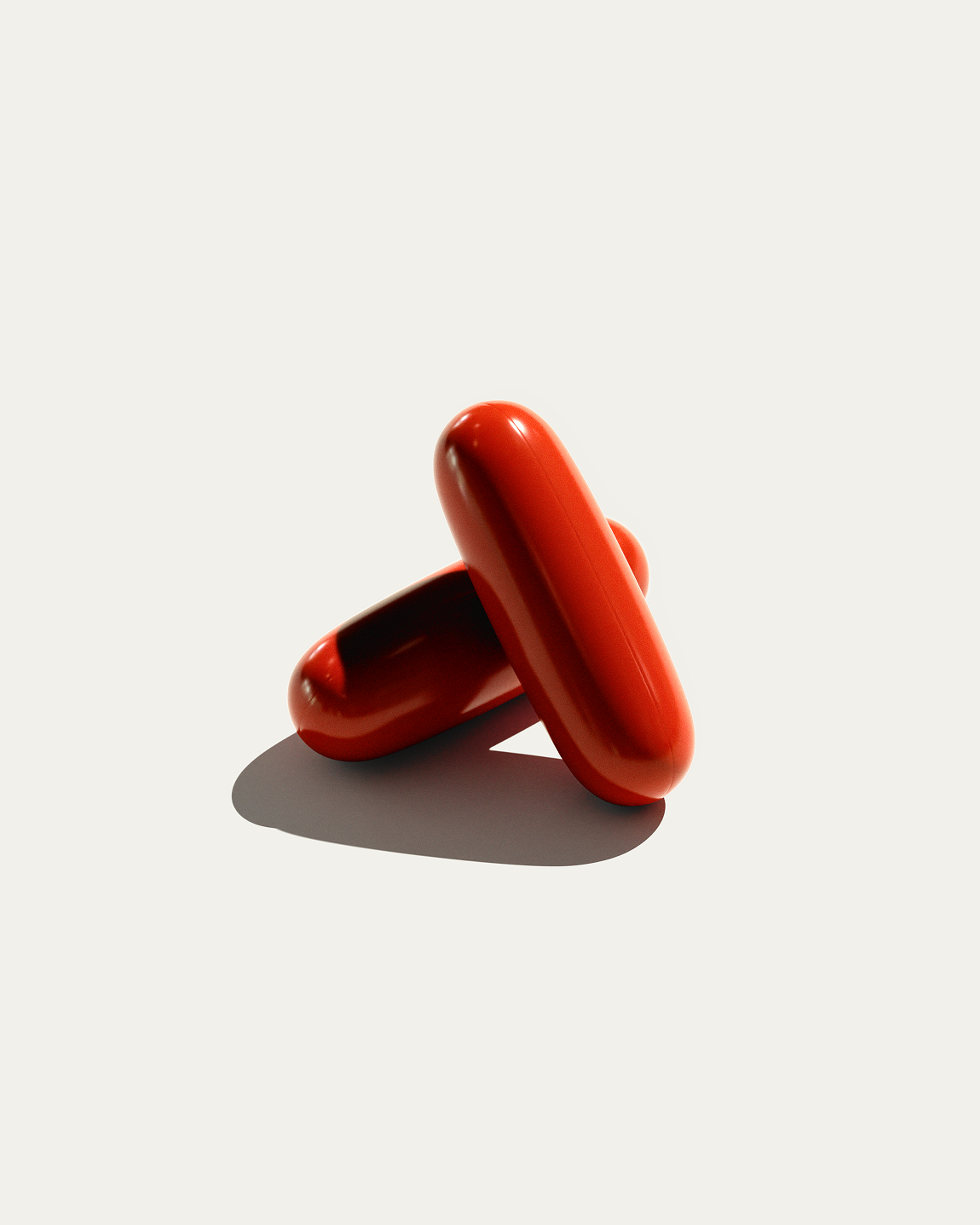
Mitopure Softgels
4.5 · 3883 reviews
The simplest form of Mitopure
Rest
Rest days are an essential part of the recovery process. While there is no standard recommendation for the number of rest days per week, most experts suggest a minimum of 1-2 days of rest or active recovery days.
Sleep
When you’re leading a busy, active lifestyle, sleep is often the first thing to go. However, proper sleep is essential for your body to recoup and recover from hard workouts and to reduce inflammatory hormones released during exercise.[20]
If you struggle to sleep well, try putting away any technology an hour before bed and create a relaxing bedtime routine such as journaling, meditating, or taking a warm bath to help you wind down.
Foam rolling
Foam rolling exercises help alleviate muscle fatigue and soreness, which can get you back to being active sooner. You can adopt a foam rolling practice after workouts and the day after hard workout days to help you stretch out and reduce inflammation-related pain.[21]
Massage
Evidence alludes to the benefits of massage therapy for muscle performance and reducing DOMS, particularly within 48 hours after an intense workout. The good news is that benefits can be seen in as little as 8 minutes, so you don’t need to allot much time. You can buy your own massager, have your partner massage you, or get professional massages as you’re able.[22]
Cold plunging
While many people may be skeptical, cold-water therapy has the potential to speed muscle tissue healing, reduce inflammation and swelling, and decrease muscle soreness.[23] There is some concern that cold plunge directly after a strength training session may negatively impact muscle growth, so it’s best to wait a few hours before jumping in.[24]
Final words
Whether you are focused on strength or training for endurance, a solid muscle recovery plan needs to be part of the equation. Incorporating plenty of muscle recovery foods, supplements, and lifestyle practices such as proper sleep, rest days, and foam rolling will ensure the most effective, holistic approach is taken.
Consuming a balance of carbs and protein throughout the day helps replenish glycogen stores to aid in recovery and rebuild muscle at the same time. In addition, incorporating a supplement like Mitopure can maximize your recovery efforts, which is clinically studied to positively impact mitochondrial function, exercise performance, and recovery.[25]
Always consult a medical professional before starting any new supplement or diet program.
Authors

Written by
Dietitian-Nutritionist, and Health Content Writer

Reviewed by
PhD, RD CSSD
References
- ↑
Atel PN, Zwibel H. Physiology, Exercise. [Updated 2022 Sep 12]. In: StatPearls [Internet]. Treasure Island (FL): StatPearls Publishing; 2024 Jan-. Available from: https://www.ncbi.nlm.nih.gov/books/NBK482280/ (https://www.ncbi.nlm.nih.gov/books/NBK482280/)
- ↑
Vickers, A J. “Time course of muscle soreness following different types of exercise.” BMC musculoskeletal disorders vol. 2 (2001): 5. doi:10.1186/1471-2474-2-5
- ↑
Hotfiel, Thilo et al. “Accelerating Recovery from Exercise-Induced Muscle Injuries in Triathletes: Considerations for Olympic Distance Races.” Sports (Basel, Switzerland) vol. 7,6 143. 13 Jun. 2019, doi:10.3390/sports7060143
- ↑
Vliet, Stephan van et al. “Achieving Optimal Post-Exercise Muscle Protein Remodeling in Physically Active Adults through Whole Food Consumption.” Nutrients vol. 10,2 224. 16 Feb. 2018, doi:10.3390/nu10020224
- ↑
Hotfiel, Thilo et al. “Accelerating Recovery from Exercise-Induced Muscle Injuries in Triathletes: Considerations for Olympic Distance Races.” Sports (Basel, Switzerland) vol. 7,6 143. 13 Jun. 2019, doi:10.3390/sports7060143
- ↑
Tarazona-Díaz, Martha P et al. “Watermelon juice: potential functional drink for sore muscle relief in athletes.” Journal of agricultural and food chemistry vol. 61,31 (2013): 7522-8. doi:10.1021/jf400964r
- ↑
Ortega, Daniel Rojano et al. “Tart cherry and pomegranate supplementations enhance recovery from exercise-induced muscle damage: a systematic review.” Biology of sport vol. 38,1 (2021): 97-111. doi:10.5114/biolsport.2020.97069
- ↑
Margolis, Lee M et al. “Coingestion of Carbohydrate and Protein on Muscle Glycogen Synthesis after Exercise: A Meta-analysis.” Medicine and science in sports and exercise vol. 53,2 (2021): 384-393. doi:10.1249/MSS.0000000000002476
- ↑
Harty, Patrick S et al. “Nutritional and Supplementation Strategies to Prevent and Attenuate Exercise-Induced Muscle Damage: a Brief Review.” Sports medicine - open vol. 5,1 1. 7 Jan. 2019, doi:10.1186/s40798-018-0176-6
- ↑
Harty, Patrick S et al. “Nutritional and Supplementation Strategies to Prevent and Attenuate Exercise-Induced Muscle Damage: a Brief Review.” Sports medicine - open vol. 5,1 1. 7 Jan. 2019, doi:10.1186/s40798-018-0176-6
- ↑
Harty, Patrick S et al. “Nutritional and Supplementation Strategies to Prevent and Attenuate Exercise-Induced Muscle Damage: a Brief Review.” Sports medicine - open vol. 5,1 1. 7 Jan. 2019, doi:10.1186/s40798-018-0176-6
- ↑
Rojano-Ortega, Daniel et al. “Effects of Beetroot Supplementation on Recovery After Exercise-Induced Muscle Damage: A Systematic Review.” Sports health vol. 14,4 (2022): 556-565. doi:10.1177/19417381211036412
- ↑
Van Vliet, Stephan et al. “Consumption of whole eggs promotes greater stimulation of postexercise muscle protein synthesis than consumption of isonitrogenous amounts of egg whites in young men.” The American journal of clinical nutrition vol. 106,6 (2017): 1401-1412. doi:10.3945/ajcn.117.159855
- ↑
Alcantara, J.M.A., Sanchez-Delgado, G., Martinez-Tellez, B. et al. Impact of cow’s milk intake on exercise performance and recovery of muscle function: a systematic review. J Int Soc Sports Nutr 16, 22 (2019). https://doi.org/10.1186/s12970-019-0288-5
- ↑
Russo, Isabella et al. “Does the Nutritional Composition of Dairy Milk Based Recovery Beverages Influence Post-exercise Gastrointestinal and Immune Status, and Subsequent Markers of Recovery Optimisation in Response to High Intensity Interval Exercise?.” Frontiers in nutrition vol. 7 622270. 14 Jan. 2021, doi:10.3389/fnut.2020.622270
- ↑
Menzies C, Wood M, Thomas J, et al. “Frequent Carbohydrate Ingestion Reduces Muscle Glycogen Depletion and Postpones Fatigue Relative to a Single Bolus”. International journal of sport nutrition and exercise metabolism. 01 May. 2020 2020;30(3):203-209. doi:10.1123/ijsnem.2019-0291
- ↑
Schoenfeld, Brad Jon et al. “Pre- versus post-exercise protein intake has similar effects on muscular adaptations.” PeerJ vol. 5 e2825. 3 Jan. 2017, doi:10.7717/peerj.2825
- ↑
Aragon, Alan Albert, and Brad Jon Schoenfeld. “Nutrient timing revisited: is there a post-exercise anabolic window?.” Journal of the International Society of Sports Nutrition vol. 10,1 5. 29 Jan. 2013, doi:10.1186/1550-2783-10-5
- ↑
Zhao, Haotian et al. “Pharmacological Effects of Urolithin A and Its Role in Muscle Health and Performance: Current Knowledge and Prospects.” Nutrients vol. 15,20 4441. 19 Oct. 2023, doi:10.3390/nu15204441
- ↑
Dáttilo, Murilo et al. “Effects of Sleep Deprivation on Acute Skeletal Muscle Recovery after Exercise.” Medicine and science in sports and exercise vol. 52,2 (2020): 507-514. doi:10.1249/MSS.0000000000002137
- ↑
Wiewelhove, Thimo et al. “A Meta-Analysis of the Effects of Foam Rolling on Performance and Recovery.” Frontiers in physiology vol. 10 376. 9 Apr. 2019, doi:10.3389/fphys.2019.00376
- ↑
Guo, Jianmin et al. “Massage Alleviates Delayed Onset Muscle Soreness after Strenuous Exercise: A Systematic Review and Meta-Analysis.” Frontiers in physiology vol. 8 747. 27 Sep. 2017, doi:10.3389/fphys.2017.00747
- ↑
Lateef, Fatimah. “Post exercise ice water immersion: Is it a form of active recovery?.” Journal of emergencies, trauma, and shock vol. 3,3 (2010): 302. doi:10.4103/0974-2700.66570
- ↑
Fuchs CJ, Kouw IWK, Churchward-Venne TA, et al. Postexercise cooling impairs muscle protein synthesis rates in recreational athletes. J Physiol. 2020;598(4):755-772. doi:10.1113/JP278996
- ↑
Zhao H, Song G, Zhu H, Qian H, Pan X, Song X, Xie Y, Liu C. Pharmacological Effects of Urolithin A and Its Role in Muscle Health and Performance: Current Knowledge and Prospects. Nutrients. 2023; 15(20):4441. https://doi.org/10.3390/nu15204441
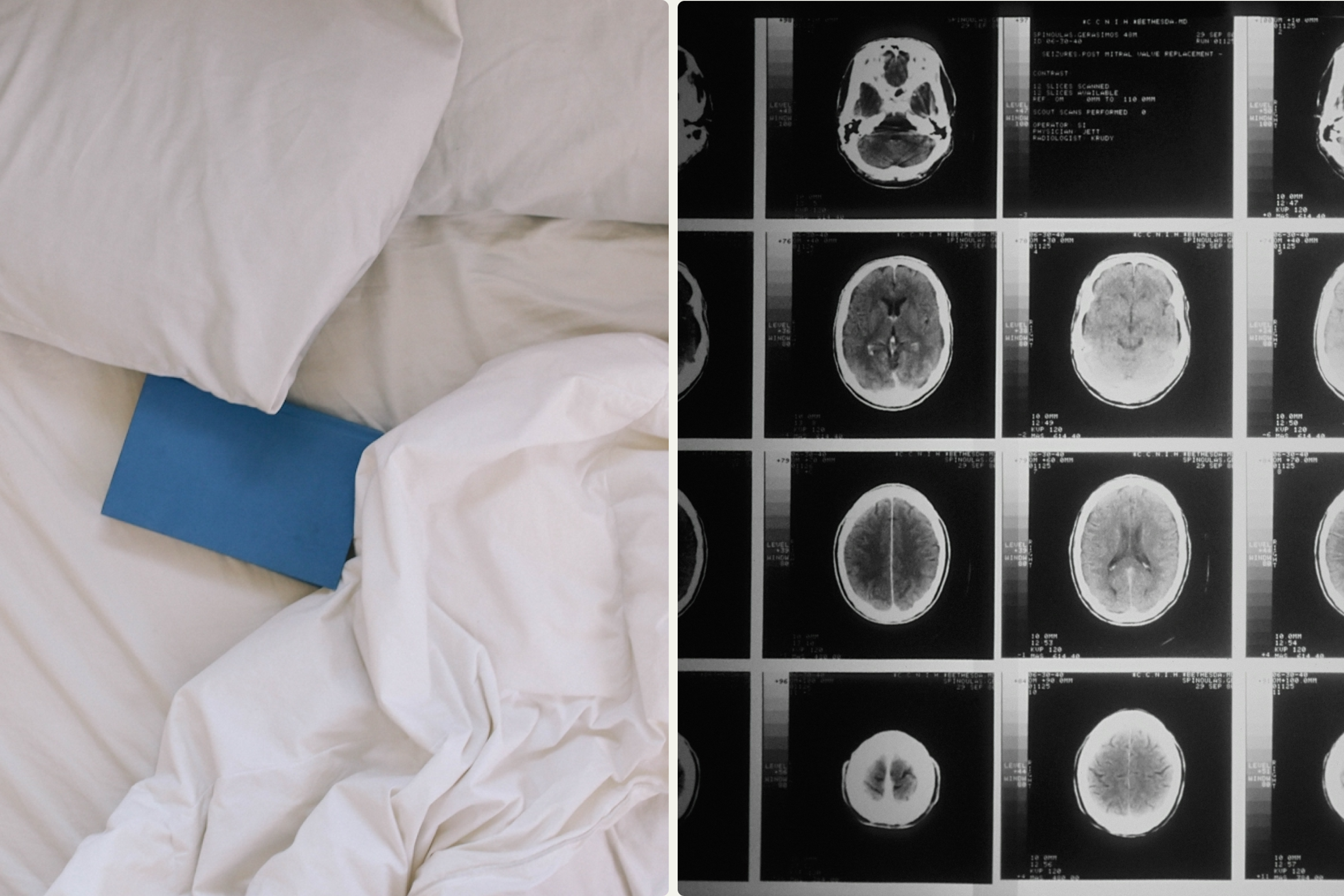
·
Skincare·
